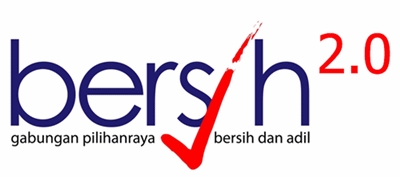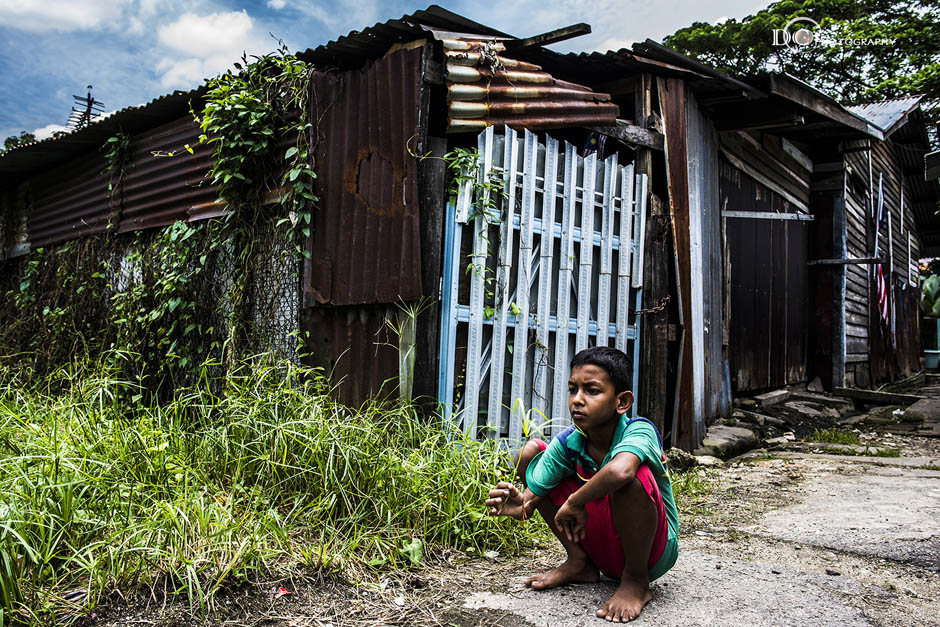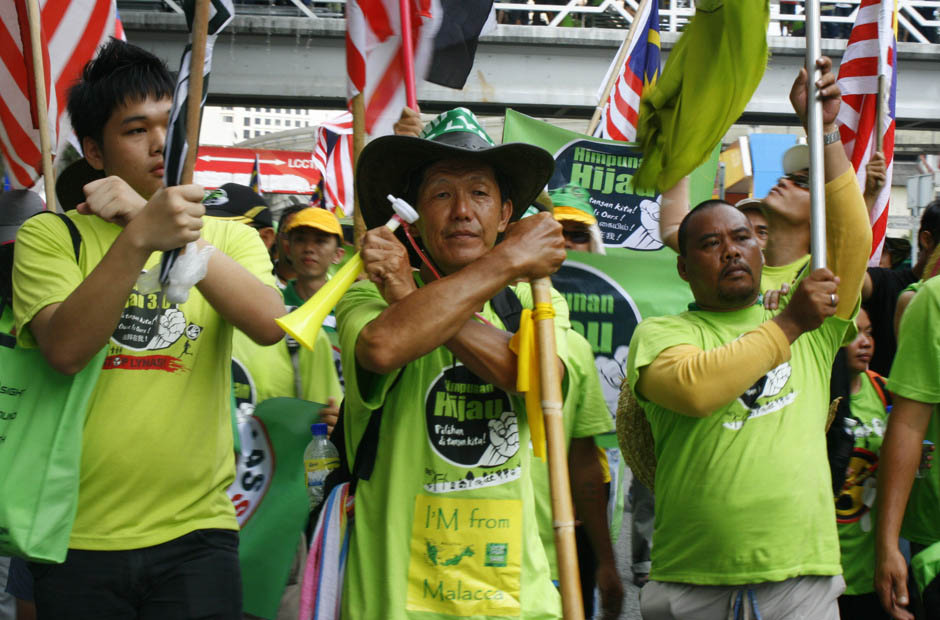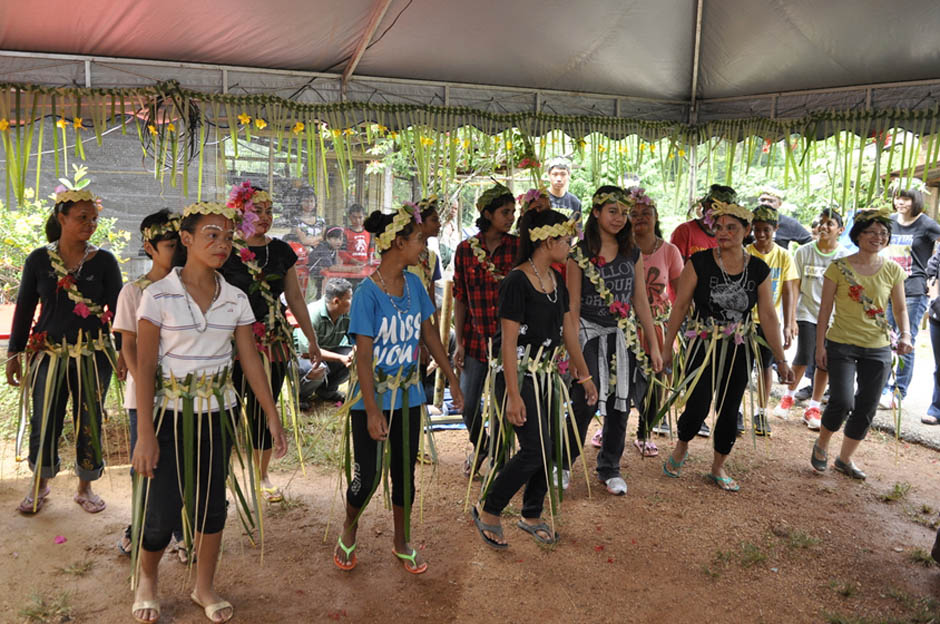| Sarawak State Elections: Election Reform Now or Risk Erosion of Legitimacy of Elected Government |
 |
 |
 |
| Wednesday, 25 May 2011 21:35 |
|
Based on our data collection and observations, BERSIH 2.0 would like to highlight the following as key issues marring the recently concluded elections: 1. Abuses of power
During the election, there have been many reported and alleged incidences that would constitute abuse of power by civil servants and federal and state executives. For instance, federal and state executives openly campaigned for their political parties when attending events in their official capacity. Some examples of this include Deputy Defence Minister Datuk Dr Abd Latiff Ahmad reminding army veterans in Sarawak to not support opposition leader Datuk Seri Anwar Ibrahim during the ‘Deputy Defence Minister Meeting Session with Sarawak State Army Veterans’ at Sibu.
Other allegations include a revelation by a kapitan (Chinese community leader appointed by the state government) that government personnel including the Special Branch officers from the police and the military would be stationed in longhouses in the last few days of the campaigning period until the polling day, particularly longhouses with more voters and stronger anti-government sentiments. Earlier, BERSIH 2.0 raised concerns regarding the use of the army in intimidating constituents to vote for Barisan Nasional (BN). There are numerous other reported and allegations of incidents of abuse of power including banning of human rights activists from entering Sarawak, use of government vehicles during campaigning and Jabatan Kemajuan Masyarakat (KEMAS) officers canvassing for BN candidates. While these instances of power abuse may have violated the Election Offences Act 1954 and the Anti-Corruption Act 1997, there is a strong need to explicitly criminalise any abuse of public power and resources for partisan gain in election campaigns. 2. Vote buying, promises and threats There have been many reports and allegations of vote buying, with offers ranging from RM20 to thousands of ringgits. One of the most glaring incidents so far is a video released by MEO-Net where a tuai rumah in Tamin constituency spoke of BN representatives giving him three cheques which amounted to RM10,000 while heads of family in the community were given RM50 each . The widespread practice of vote buying was further revealed by Sibu Election Watchers (SEW) on 25 April where about 100 Ibans from Bawang Assan constituency gathered at the Sarawak United Peoples’ Party (SUPP) office to claim the RM400 that was promised to them by SUPP agents. They claimed that they were given RM100 each on 15 April and promised another RM400 if the SUPP candidate won in the election. Although this has been denied, it certainly warrants immediate investigation. Promises of development are also a rampant feature in the 10th Sarawak state election, indicating an unhealthy culture that is sanctioned and exercised by the Prime Minister, his federal ministers, state ministers and sometimes even opposition politicians. Prime Minister Datuk Seri Najib Tun Razak appears to have not learnt from public outcry against his infamous line, “You help me, I help you” during the Sibu by-election. On 14 April, he announced a contribution of RM600,000 in total, or RM3,000 per person, to Sarawak to veteran Border Scouts . Other promises the Prime Minister made during the campaign period include allocating RM1.5 million to upgrade Majlis Bandaraya Kuching Selatan (MBKS) apartments, RM60 million to construct the Marudi-Miri road, RM90 million for construction of the Song-Kapit road and RM50.1 million to solve the low water pressure in rural areas and many others. 3. Polling irregularities and violations On 14 April, the Democratic Action Party (DAP) exposed a video clip which showed a man allegedly purchasing postal votes from four women at Wisma Sanyan . The DAP claimed that they identified the man to be a health officer from the Sibu Municipal Council and the four women to be teachers who were also election workers. During the tallying in Senadin, a few incidents indicated a need for a review of the results. Representatives from Parti Keadilan Rakyat (PKR) demanded a recount as the BN candidate won with a small margin of 58 votes but the demand was rejected by the returning officer. Other suspicious incidences occurred at the tallying centre during counting including an electricity blackout during which postal votes were allegedly brought in. There have been allegations that PKR polling agents at two constituencies, Simunjan and Asajaya, were denied copies of Borang 14. In another case, PKR Tebedu candidate Dr Christopher Kiyui claimed that he found differences in the number of votes between the originals and copies of Borang 14 he received.
The above are only some examples of electoral irregularities and violations that have occurred during the election. 4. Restricted Campaign and Asymmetric Media Access Despite the geographical spread as well as transportational and communicational backwardness of Sarawak, the EC has insisted to have a very short campaign period at 10 days, completely ignoring the call of BERSIH and other civil society groups of 21 days. The police and local authorities had also been selective in law enforcement related to campaign period. The police tried to stop the Opposition rallies in Kuching and other towns. Often the Opposition campaign teams were just denied police permits to organise rally or gathering. In some instances, the police also required the Opposition organizers to obtain the approval of long house chiefs as a pre-requisite for giving police permits, which was unprecedented . In Sibu, the Sibu Municipal Council (SMC) headed by Tiong Thai King, the SUPP candidate for Dudong, tore down a miniature Rocket replica of DAP. It is also most regrettable that the EC has refused to use its power under Article 115(2) of the Federal Constitution to call upon state broadcasters to provide free air time for all contesting parties or organised televised debate of the main parties. This is again a serious disregard of the informational need of inland Sarawakians, most of whom are dependent on RTM and TV3 for political information. Meanwhile, most of the mainstream newspapers have demonstrated severe bias towards the BN. Even advertisements paid for by DAP and PKR were censored. This speaks volume of the needs to reform existing media laws and to explicitly include free and fair media access in election laws. 5. Disenfranchisement As of January 2010, it was estimated that 66,000 Sarawakians did not have birth certificates or identity cards (ICs). Sarawakians face numerous difficulties in obtaining ICs, without which they are unable to register to vote. There are about tens of thousands ofSarawakians studying or working in West Malaysia, Sabah and abroad but are unable to vote as the EC in its discretion has not made postal voting available to this group of people under Sub-regulation 3(1)(f) of the Elections (Postal Voting) Regulations, despite repeated calls for them to do so. Instead, postal voting is made available only to diplomats, overseas students sponsored by the government, civil servants and, under its discretionary power, spouses of police officers. The disenfranchisement of the Sarawakian diaspora is confirmed by the figures released by the EC before the poll: Sarawak had only 34 overseas voters but there are 11,738 voting military personnel and family members, and 6,591 police personnel and family members, many of whom are not Sarawakians. While the turnout has increased to 70% in the 2011 state elections, one must remember it was as low as 61% in the 2006 state elections and 58% in the 2008 federal elections. Not expanding the voting rights to the diaspora of Sarawak and Sabah, many of whom are forced to seek employment or education outside their home state, is to suppress the votes of East Malaysians in the national affairs. In principle, the postal ballot system must be thoroughly reformed to make sure the facility is available to all and mandatory to none. Polling centres should be set up in major town centres at home and abroad for all out-of-town voters for voters to collect and cast their votes under supervision of party agents. The EC should not ignore this growing call of civil society as it did this time on Sarawak. Without addressing these issues, the right to vote for many Sarawakians remains illusory. It is deplorable that the EC has been silent on most allegations and reports of elections offences. This further reinforces the perception that the EC is weak in carrying out its enforcement duties and lacks independence. In conclusion, BERSIH 2.0 is of the opinion that the 10th Sarawak state election was not free, not fair and far from clean. Recommendations: 1. The EC must immediately investigate all allegations of electoral violations and take action against those who have committed election offences.
2. The EC must extend postal voting rights to all East Malaysians living in Peninsula Malaysia or abroad. The same right must also be applicable for all Malaysians living abroad.
Dato’ Ambiga Sreenevasan Bersih 2.0 Chairperson The Steering Committee of BERSIH 2.0 comprises: Dato’ Ambiga Sreenevasan (Chairperson), Andrew Khoo, Arumugam K., Dr Farouk Musa, Haris Ibrahim, Liau Kok Fah, Maria Chin Abdullah, Richard Y W Yeoh, Dr Toh Kin Woon, Dr Wong Chin Huat, Datuk Yeo Yang Poh, Zaid Kamaruddin, Subramaniam Pillay and Arul Prakkash. |
| Last Updated on Wednesday, 25 May 2011 21:48 |

 BERSIH 2.0 is deeply disappointed at the blatant misuse of state apparatus and other occurrences which violate the Elections Offences Act during the 10th Sarawak state election. Regrettably, the Election Commission (EC) has failed once again to act impartially and proactively on these violations to ensure free, fair and clean elections.
BERSIH 2.0 is deeply disappointed at the blatant misuse of state apparatus and other occurrences which violate the Elections Offences Act during the 10th Sarawak state election. Regrettably, the Election Commission (EC) has failed once again to act impartially and proactively on these violations to ensure free, fair and clean elections.





